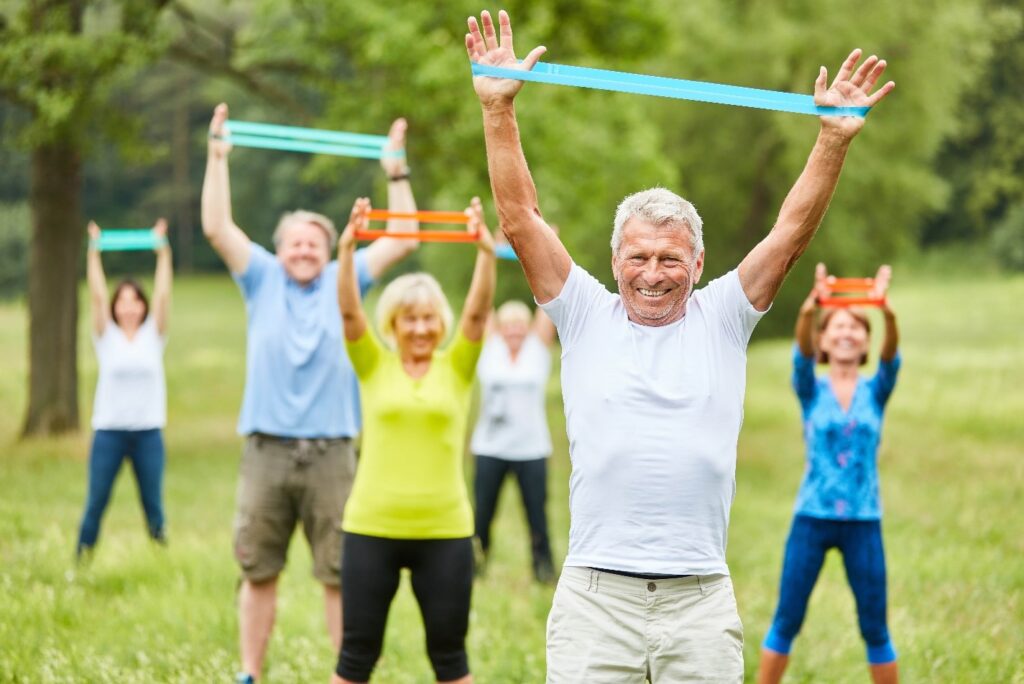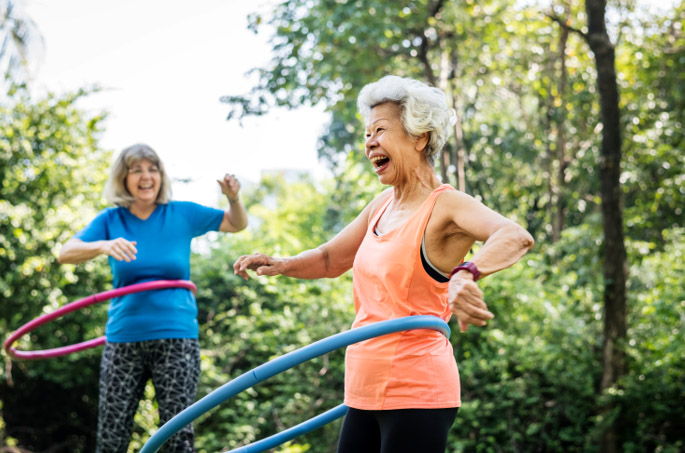As we age, the risk of cognitive decline and dementia increases, presenting significant challenges not only to individuals but also to their families and healthcare systems. Dementia, characterized by a progressive decline in cognitive function, affects millions of seniors worldwide. However, research has shown that engaging in regular exercise can play a crucial role in reducing the risk of dementia and cognitive decline in seniors. John Telesca of Port Chester explores how physical activity benefits the brain, the exercises most effective in maintaining cognitive health, and practical tips for seniors looking to incorporate more exercise into their daily lives.
The Connection Between Exercise and Brain Health
Several studies have demonstrated a strong link between physical activity and improved cognitive function in older adults. Regular exercise promotes overall brain health by enhancing blood flow, reducing inflammation, and encouraging the growth of new brain cells. It also helps manage risk factors such as high blood pressure, diabetes, and obesity, which are associated with an increased risk of dementia.
The brain, like other muscles in the body, requires stimulation and nourishment to remain healthy. Physical activity increases the production of chemicals that promote brain cell growth and the formation of new neural connections. One such chemical is brain-derived neurotrophic factor (BDNF), which plays a critical role in learning, memory, and cognitive resilience. Higher levels of BDNF are often found in individuals who engage in regular physical activity, contributing to better cognitive performance.

How Exercise Helps Reduce the Risk of Dementia and Cognitive Decline
- Improved Blood Circulation: Physical activity increases blood flow to the brain, ensuring it receives essential oxygen and nutrients. This enhanced circulation helps maintain brain health and reduces the risk of vascular dementia caused by reduced blood flow to the brain.
- Reduced Inflammation and Oxidative Stress: Exercise has anti-inflammatory effects that can protect brain cells from damage. It also helps combat oxidative stress, a process that damages cells and is linked to the development of neurodegenerative diseases, including Alzheimer’s disease.
- Enhanced Neuroplasticity: Regular exercise encourages neuroplasticity, the brain’s ability to adapt, reorganize, and form new connections. This adaptability is essential for learning, memory, and cognitive resilience, which are critical factors in preventing cognitive decline.
- Regulated Blood Sugar Levels: High blood sugar levels have been linked to an increased risk of dementia. Exercise helps regulate glucose levels, reducing the risk of diabetes and its associated cognitive complications.
- Stress and Anxiety Reduction: Chronic stress and anxiety can have a detrimental impact on cognitive health. Physical activity releases endorphins, which help reduce stress and improve mood, leading to better mental well-being and potentially slowing down cognitive decline.
Types of Exercise That Benefit Cognitive Health
Different types of exercises offer various benefits for brain health, and a combination of activities is most effective in reducing the risk of dementia and cognitive decline. Here are some types of exercises that have been shown to have a positive impact:
- Aerobic Exercise: Aerobic exercises, such as walking, swimming, cycling, and dancing, are particularly effective in promoting cardiovascular health and increasing blood flow to the brain. Studies have found that seniors who engage in regular aerobic activity are more likely to maintain cognitive function as they age.
- Strength Training: Resistance exercises, such as lifting weights or using resistance bands, help build and maintain muscle mass, which is crucial for overall physical health and mobility. Strength training has also been linked to improved executive function, memory, and information processing speed in seniors.
- Flexibility and Balance Exercises: Yoga, Pilates, and tai chi are excellent options for improving balance, flexibility, and coordination. These exercises not only enhance physical stability but also help reduce the risk of falls, a common concern for seniors, which can impact cognitive health.
- Mind-Body Exercises: Activities like tai chi and yoga, which incorporate both physical movement and mental focus, have been shown to improve cognitive function. These exercises are particularly effective in enhancing attention, memory, and overall cognitive flexibility.
- Social and Group Activities: Engaging in group exercises, such as dancing classes, group walks, or team sports, provides a social element that can help reduce feelings of isolation and loneliness, which are risk factors for cognitive decline. The combination of physical activity and social interaction offers dual benefits for brain health.

Practical Tips for Seniors to Incorporate Exercise Into Daily Life
- Start Slowly and Gradually Increase Intensity: For seniors who are not accustomed to regular exercise, it’s essential to start slowly. Begin with low-impact activities, such as walking or gentle stretching, and gradually increase the intensity and duration as fitness levels improve.
- Find Enjoyable Activities: Engaging in activities that are enjoyable increases the likelihood of sticking to an exercise routine. Whether it’s gardening, dancing, swimming, or walking with a friend, finding something enjoyable makes exercise feel less like a chore.
- Incorporate Exercise Into Daily Routines: Small changes, such as taking the stairs instead of the elevator or going for a walk after meals, can make a significant difference over time. Aim for at least 150 minutes of moderate-intensity aerobic activity each week, combined with muscle-strengthening activities on two or more days per week.
- Join a Class or Group: Participating in exercise classes or joining a walking group can provide motivation and accountability, making it easier to maintain a regular exercise routine. Additionally, the social aspect of group activities offers cognitive benefits.
- Consult with a Healthcare Professional: Before starting any exercise program, it’s essential for seniors to consult with their healthcare provider, especially if they have existing medical conditions or concerns about physical activity. A healthcare professional can help design an exercise plan that is safe and effective.
The Evidence: Real-World Studies Supporting the Benefits of Exercise
A landmark study published in the “Journal of Alzheimer’s Disease” found that seniors who engaged in regular physical activity had a 35% lower risk of cognitive decline and a 50% lower risk of developing Alzheimer’s disease compared to those who were sedentary. Another study in the “British Journal of Sports Medicine” revealed that resistance training improved executive function, memory, and overall cognitive performance in older adults.
These findings are supported by countless other studies, making it clear that regular exercise is a powerful tool in the fight against cognitive decline and dementia. While exercise cannot entirely prevent these conditions, it can significantly delay their onset and reduce the severity of symptoms.
Exercise as a Prescription for a Healthier Brain
The impact of regular exercise on reducing the risk of dementia and cognitive decline in seniors is undeniable. Physical activity promotes brain health by improving blood flow, reducing inflammation, and encouraging neuroplasticity. Engaging in a mix of aerobic, strength, flexibility, and mind-body exercises provides comprehensive benefits, helping seniors maintain cognitive function and independence as they age.
Incorporating regular exercise into daily life can be a game-changer for seniors looking to maintain their mental acuity and overall well-being. By taking proactive steps today, seniors can significantly reduce their risk of cognitive decline and enjoy a more vibrant and fulfilling life in their golden years.
